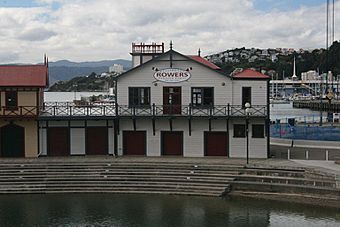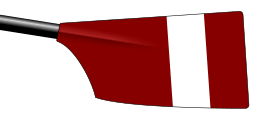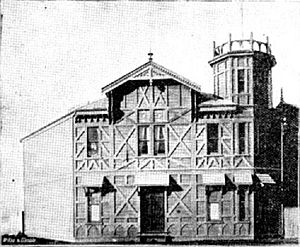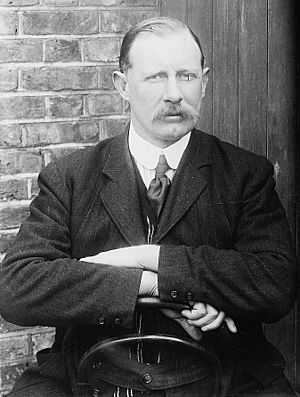Wellington Rowing Club facts for kids
Quick facts for kids Wellington Rowing Club |
|
|---|---|
 |
|
 |
|
| Location | Wellington, New Zealand |
| Founded | 1885 |
| Affiliations |
|
| Notable members | |
|
|
The Wellington Rowing Club is a sports club located on Wellington Harbour, New Zealand. It's a place where people learn and practice rowing, a sport where you race boats using oars. The club's building is very old and important. It's listed as a "Category I" historic place by Heritage New Zealand. This means it has a lot of special history and cultural value.
Contents
Club History: From Old to New
The Wellington Rowing Club first started in October 1871. It was set up as a club for professional rowers. James Stewart, a well-known sawmiller, created it. He wanted to help "working men" join in water sports.
The Famous Dolly Varden Boat
One of the most famous boats at the club was the Dolly Varden. This four-oared boat arrived in New Zealand in 1873. It was special because it was the first boat in New Zealand to have sliding seats. These seats helped rowers move back and forth, making them faster.
The Dolly Varden crew won big races. In 1876, the crew of H Woods, J Walker, William Hearn (rower), and M Moore won the Interprovincial Championship of New Zealand. The next year, in 1877, H Woods, J Walker, J McGrath, and William Hearn (rower) won it again.
Later, the Dolly Varden boat was sold. By 1880, the professional Wellington Rowing Club closed down.
Starting Again: The Amateur Club
The Wellington Rowing Club was started again in July 1885. This time, it was an amateur club, meaning rowers didn't get paid. James Stewart, who founded the first club, also helped restart this one. In 2010, the amateur club celebrated its 125th birthday!
Club Colours and What They Mean
The club's main colours are a maroon (dark red) top with a white stripe across it. When the club first started in 1885, its colours were pink and white. To remember its beginnings, the club changed back to these original pink and white colours for its 125th season in 2009/2010.
The Club's Home: Its Clubhouse
The Wellington Rowing Club has had a few homes over its 125 years. Its first permanent clubhouse opened on December 17, 1887. It was located at the bottom of Cuba Street in Wellington.
In 1889, the clubhouse had to move. This was because the harbour was being filled in to create more land. The building was moved "some little distance seaward" to a spot north of Jervois Quay. The club stayed in this building until 1931.
The building the club uses today was built in 1894. It was designed by Frederick de Jersey Clere. It was originally meant to be a base for the Wellington Naval Artillery Volunteers. This group was formed to help protect Wellington's harbour. People worried about a possible invasion at the time.
However, the building was never used for its original purpose. In 1927, it became the first home for the Wellington Free Ambulance. After a short time, the ambulance service moved to a new building. In 1931, the Wellington Rowing Club took over the 'Old Navals Hall'. The club has been there ever since.
Amazing Rowers: Famous Members
The Wellington Rowing Club has had many famous rowers. Some have even represented New Zealand in international competitions and won Olympic medals!
Early Champions
New Zealand's first international sculling (single rower) champion was William Bridson. He won the Amateur Sculling Championship of Victoria in 1891.
Tom Sullivan was another famous rower. He and Bridson were part of a Wellington Rowing Club crew that won all eight Rowing New Zealand championship titles between 1889 and 1890. Sullivan was known as "New Zealand's first sculler of international note." He later became a professional rower. In 1893, he won the English Sculling Championship. He was also the first New Zealander to try for the World Sculling Championship.
George Lauchlan was the manager of a famous New Zealand eight-oar crew in 1925. This team traveled to Australia and won the New South Wales Championship.
Wartime and Beyond
Tris Hegglun and Owen Wares were club members before World War II. During the war, they rowed for the 2nd New Zealand Expeditionary Force (NZEF). Their team beat the Cairo River Club and an all-Egyptian crew to win the Freyberg Cup. Today, the Sir Bernard Freyberg Cup is awarded to the best single sculler at the New Zealand National Club Championships.
The Golden Era: 1960s and 1970s
The 1960s and 1970s were a "golden era" for the Wellington Rowing Club. The club won the Champion Eight event in 1967 and 1969. They also won the Boss Rooster trophy in 1972.
Pete Delaney was the club's first Olympian. He represented New Zealand at the 1964 Summer Olympics in Tokyo.
In 1967, the New Zealand "All Blacks" crew won the first FISA North American Championships in Canada. They also won the USRowing National Championships in Philadelphia. This team included Wellington Rowing Club members Pete Delaney, Graeme Shaw, Tom Just, John Hunter, and Alan Boykett.
In 1968, John Hunter and Tom Just rowed for New Zealand in the eight-oar event at the 1968 Summer Olympics. Their team finished fourth.
John Hunter and Simon Dickie (the coxswain, who steers the boat) were part of the New Zealand eight-oar team that won gold at the USRowing National Championships in 1970. They also won at the FISA European Championships in Denmark, the International German Championships, and the International Austrian Championships in 1971.
At the 1972 Summer Olympics, Dick Joyce, John Hunter, and Simon Dickie won the gold medal in the eight-oar event. Ross Collinge won a silver medal in the coxless four event at the same Olympics.
At the 1976 Summer Olympics, Alec McLean and Simon Dickie won a bronze medal in the eight-oar event.
 | Selma Burke |
 | Pauline Powell Burns |
 | Frederick J. Brown |
 | Robert Blackburn |



